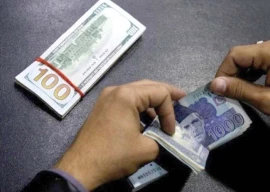
USA retains its top position as the FDI investor with an investment of $320 billion in 2015. It is followed by China, which holds 12% share in the global FDI flow. There are four other developed countries, which have invested over $100 billion overseas in 2015.
China is different from others because of the rapid growth in its outward investment flow. It has increased almost four-fold from $48 billion in 2011 to $188 billion in 2015.
We may term Pakistan lucky here due to its strong friendly relations with the fastest growing FDI investor country. China holds sufficient capacity to manage the quantum of planned fund flow under the China-Pakistan Economic Corridor.
Pakistan is going overboard to facilitate Chinese investments in the country. Its support measures range from a dedicated army battalion for the protection of Chinese to unprecedented fiscal concessions for the Gwadar port operator and free-zone investors.
It seems like Pakistan is focused on creating idyllic islands for Chinese investors in the turbulent economic and security waters. Why not we start charity from home? Have we facilitated our local businesses to the extent of making them internationally competitive?
After all, Chinese investments in the industrial or services sector require compatible Pakistani ventures to collaborate.
Can we replicate Chinese model?
What we are seeing now is that the only FDI game in town is that of Chinese origin. Investment flows from other countries are depleting. Will we call this putting eggs in one basket is a prudent policy? Even our great friend, China never depended on a single origin for inward investment in the country.
Since 1980s, when China opened up to foreign investments, it has remained a favourite investment destination for the major developed countries. Saying this, we need to keep in mind that replication of the successful Chinese model is highly improbable for today’s Pakistan.
China was a centrally planned economy with an iron fist control of the Communist Party. Their economy was gradually converted into a capitalist mode through carefully calibrated reforms.
Pakistan, on the other hand, is already a capitalist economy with a black economy almost equalling its formal side. Its tax-to-GDP ratio is among the lowest within countries of comparable income.
This large informal economy is constrained in its optimisation of innovation and seeking international collaboration. Our capital markets remain shallow and our export base is narrow. We are striving for Chinese stars in the sky, while ignoring the fertility of grounds for local businesses.

They are resilient in nature despite their inhospitable operating environment. Security and energy crisis are hitting their bottom-line, but an equal contributor remains the aggressive attitude of target-focused tax authorities.
Low level corporatisation, decline in tax filers and failure of amnesty schemes can be attributed to the trust deficit between the government and citizens.
What Pakistan needs to do
We need to talk about broader fiscal reforms to gain a competitive edge in the highly contested field of investment solicitation. Otherwise, meaningful Chinese investment that boosts productivity of Pakistani companies will remain a far cry.
Pakistan has to depict perception of an economy that creates local winners ready to compete internationally. It requires local smaller versions of Alibaba, Huawei and Belle, where Chinese or other investors can pour money and transfer technology for scaling up.
For making broader Pakistan an investor-friendly destination for both foreign and local investors, we propose a fiscal alternative of flat, low rate, broad and predictable taxation regime. It implies lowering of existing rates on income, sales, customs and other taxes, while removing all exemptions and waivers, which remain the main source of corruption and distortion in the economy.
We are aware of the populist onslaught of the proponents of progressive taxation on this concept. This flat taxation regime has been adopted in varying degrees in 32 countries.
Despite resistance, we believe that this out-of-the-box solution, which needs a detailed paper for elaboration, can amply increase the tax base and revenue amount. With a more documented economy, Pakistan can offer more investment opportunities to foreign investors around the world.
The writer is an entrepreneur based in China
Published in The Express Tribune, July 4th, 2016.
Like Business on Facebook, follow @TribuneBiz on Twitter to stay informed and join in the conversation.


1731329418-0/BeFunky-collage-(39)1731329418-0-165x106.webp)














COMMENTS
Comments are moderated and generally will be posted if they are on-topic and not abusive.
For more information, please see our Comments FAQ